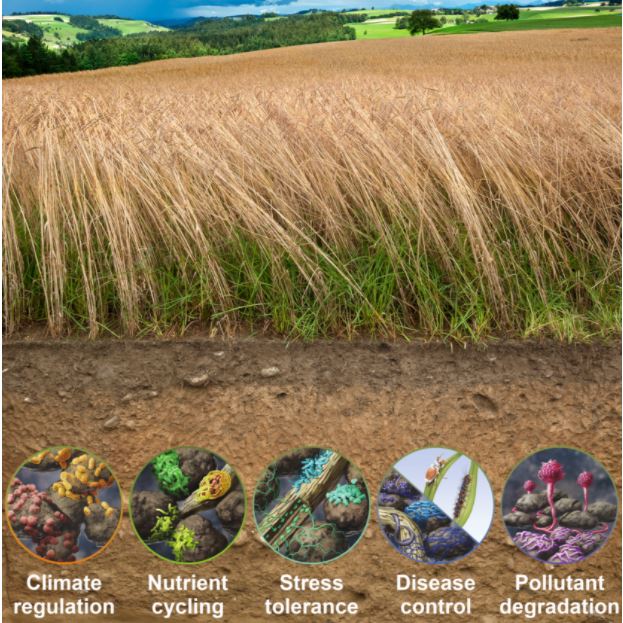MICROSERVICES
Background

Climate change exerts substantial pressure on the earth’s biodiversity and the multitude of ecosystems services it provides. This is particularly problematic for agroecosystems, where the accelerated pace of climate change combined with unsustainable land use directly threatens global food production. Political actions that aim at quantifying and mitigating the impact of climate change and unsustainable management on biodiversity are not on track to be achieved in the near future. One way to assist in achieving these goals is to harness microbial functions, i.e., those that are enhancing crop growth, nutrient use efficiency, abiotic stress resilience, disease resistance, and greenhouse gas mitigation, into agricultural production, while progressively decreasing the amount of chemical external inputs such a fertilizers and pesticides. However, the extent to which climate change affects the crop-associated microbiome and its functions is unclear and remains underrepresented in ongoing debates about climate change, global biodiversity loss and conservation policy.
The MICROSERVICES project will use a multi-domain approach to assess the impact of climate change on the crop-soil-microbiome nexus under various agricultural management regimes, with the aim to increase our capacity to predict and mitigate future climate change impacts on soil biodiversity and its cascading effects on agroecosystem functioning. For this purpose, shifts in microbial diversity, crop-microbiome interactions, and associated ecosystem multifunctionality will be assessed both 1) along natural European climate gradients with forecasted climate progressions into the future as well as 2) using an in-situ field-scale manipulation experiment to simulate drought under different conventional and organic management practices.
Objectives
MICROSERVICES will i) provide scientific insights into future impacts of climate change on the crop microbiome and associated ecosystem services, ii) promote political and public awareness of the importance of microbial diversity for sustainable agriculture, and iii) establish interactions between research institutions, agricultural stakeholders and policymakers to influence policy agendas at the national and European level.
Outcomes
The main goal of the project is to predict climate change impacts on the crop microbiome and cascading effects on ecosystem services delivery in agroecosystems. We will use next-generation DNA sequencing and isotope tracing techniques to assess the impact of different climate change events on microbial diversity and functioning. As such, the project will raise political and public awareness of the importance of microbial diversity for sustainable agricultural production under future climates and foster interactions among research entities, agricultural stakeholders, and policy makers.
Country: Switzerland (DOK trial), Fields across Europe (Natural climate gradient)
System: Wheat
Project duration: 3 years
Project partner: Agroscope (Switzerland), the European Landowners’ Organization (Belgium), LEITAT (Spain), INRAE (France), University of Kassel (Germany) and the National Observatory of Athens (Greece)
Project funding: Horizon 2020 ERA-NET COFUND scheme BiodivERsA
For further information please contact Martin Hartmann (), Elena Kost (), or Johan Six (). Link to project website.

